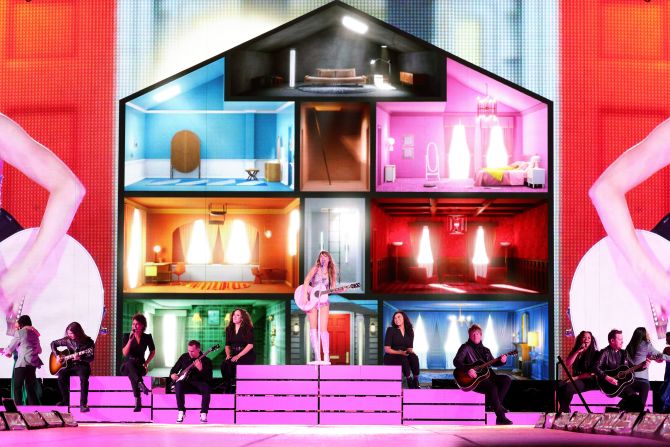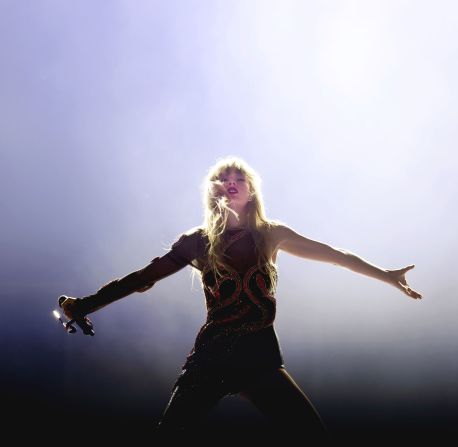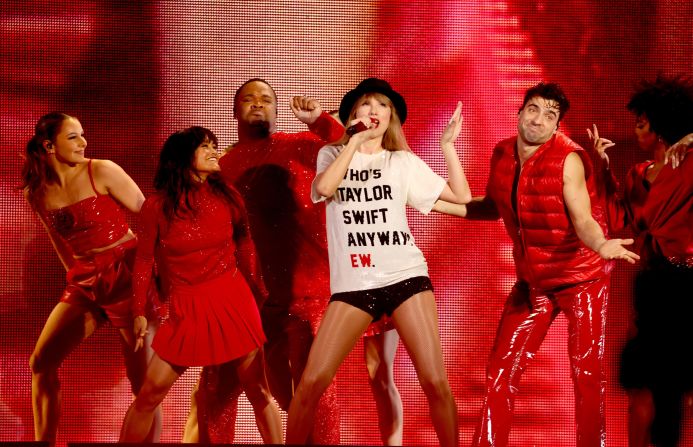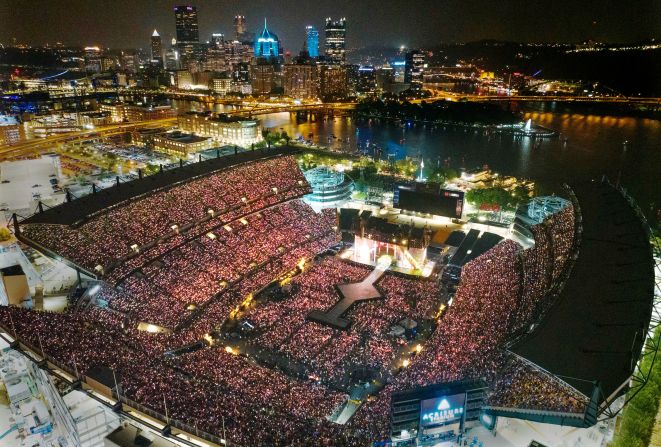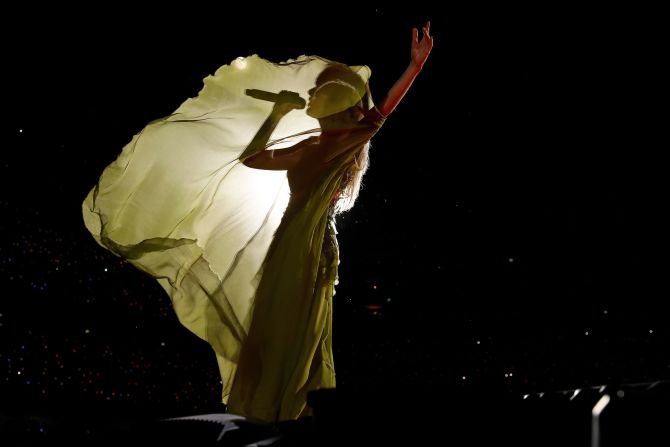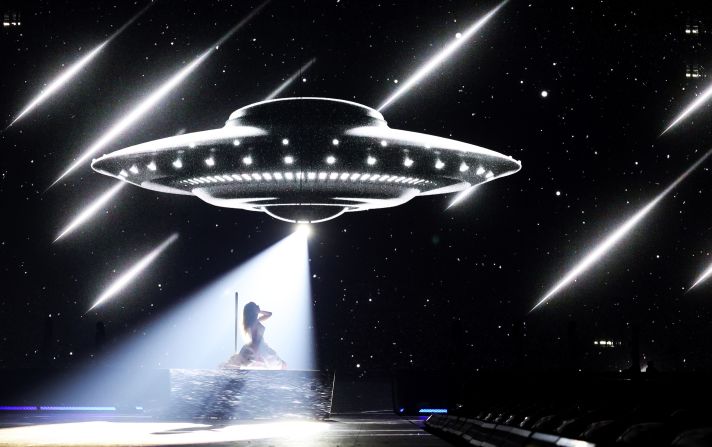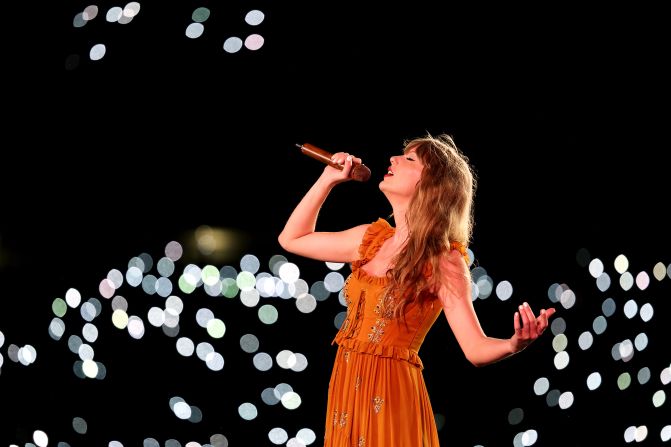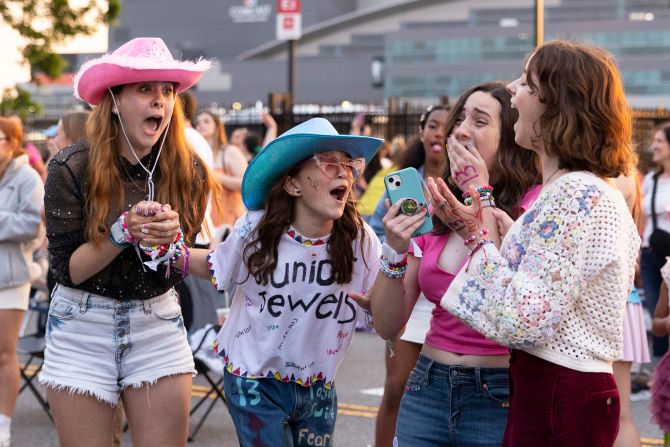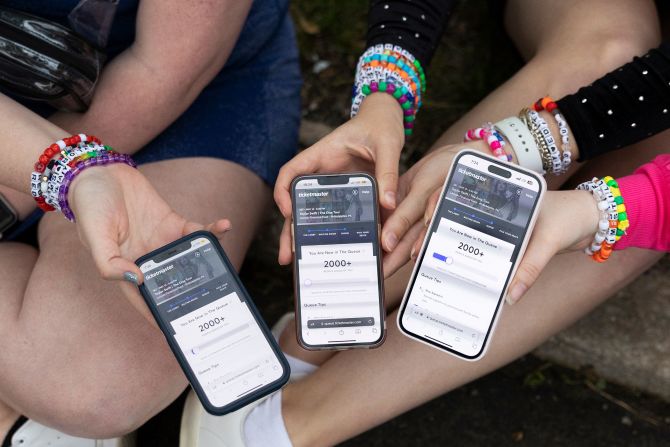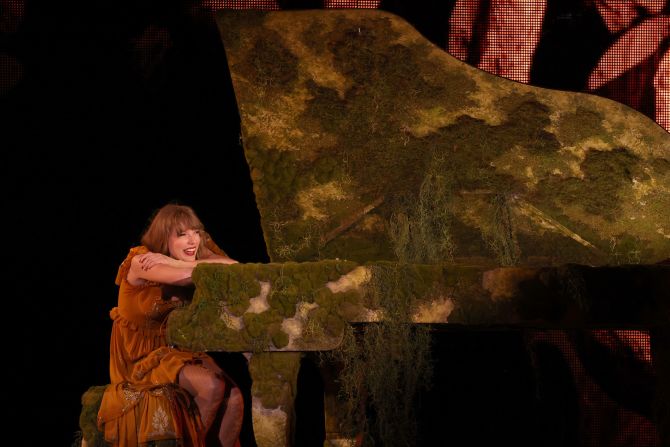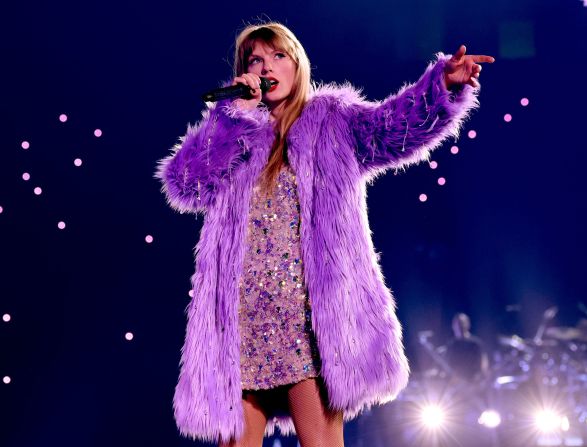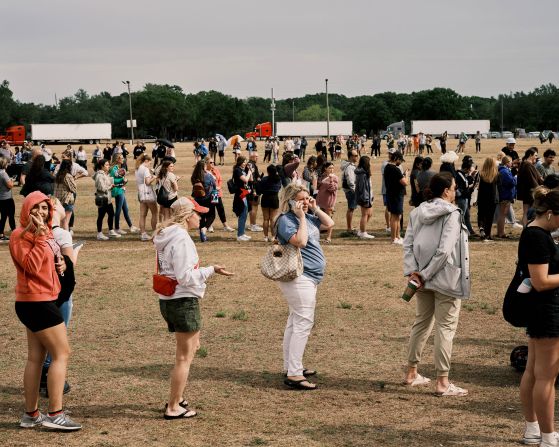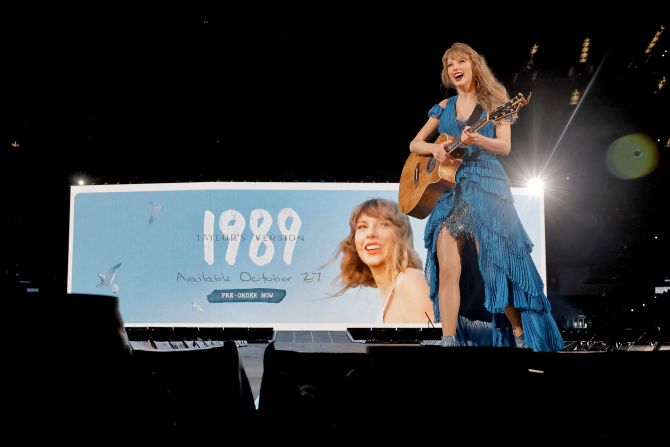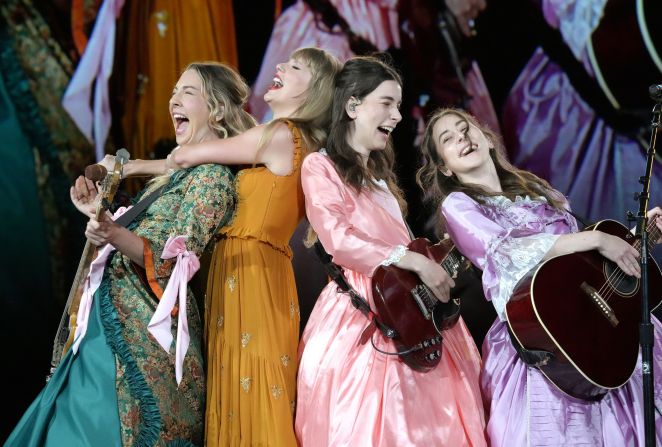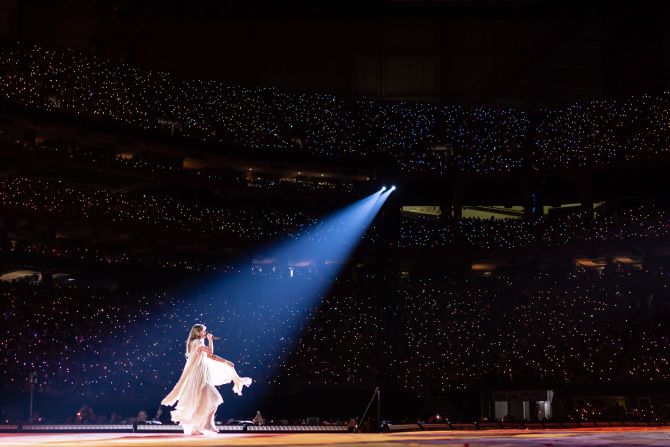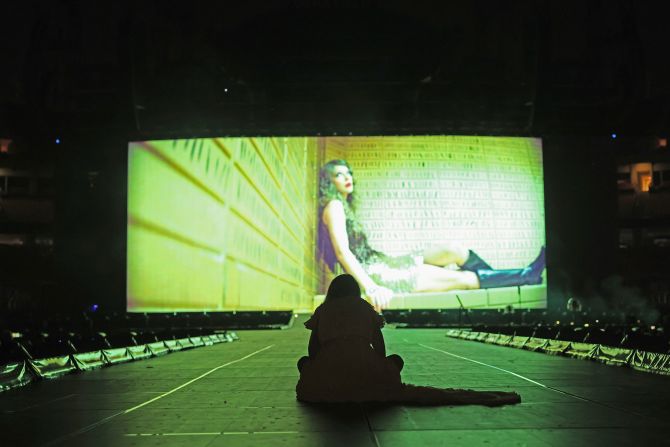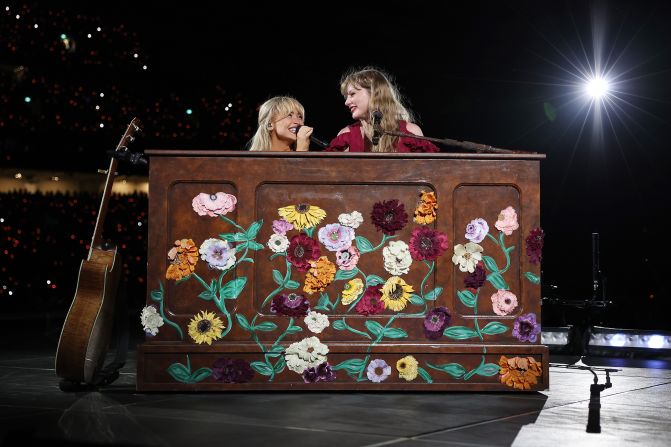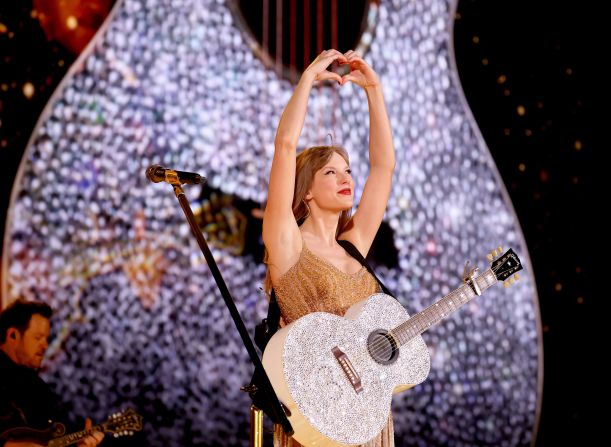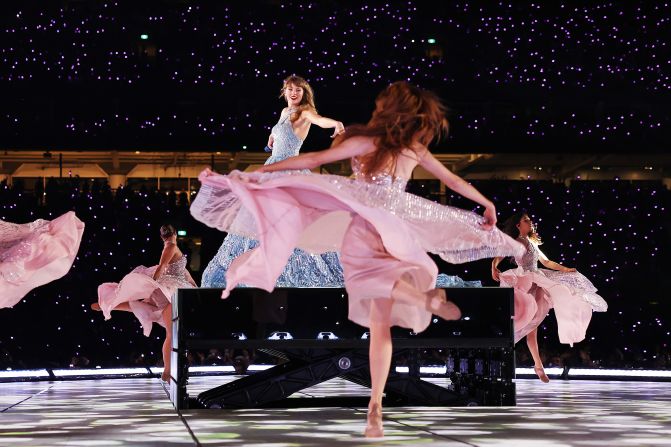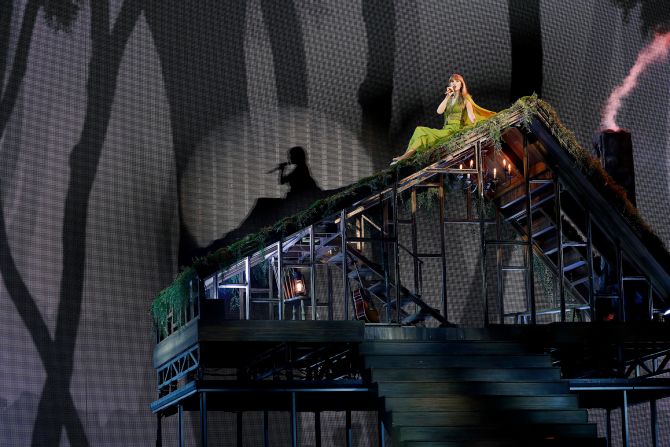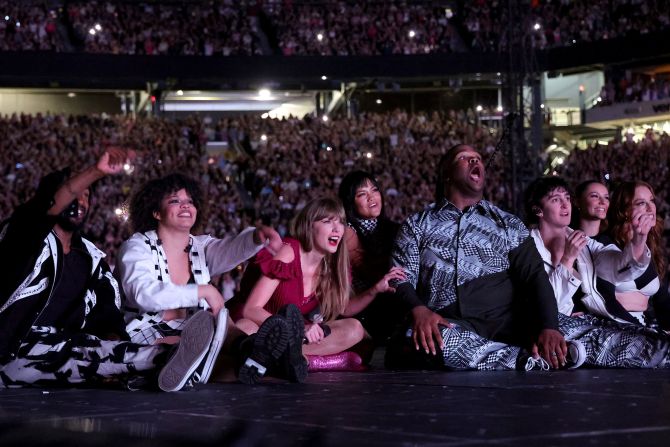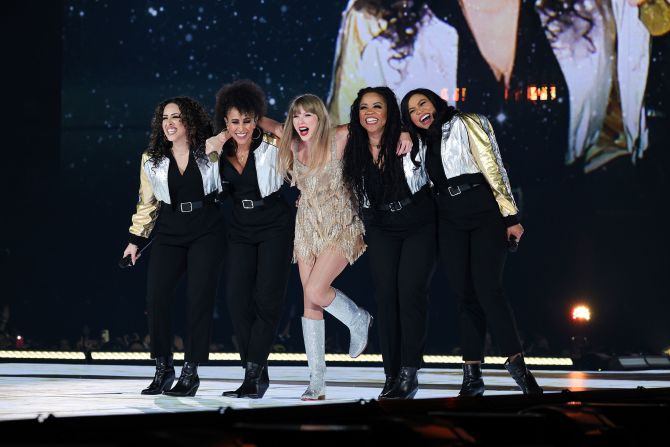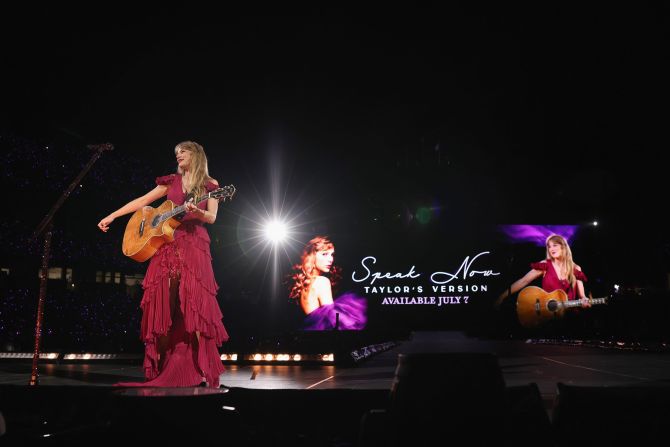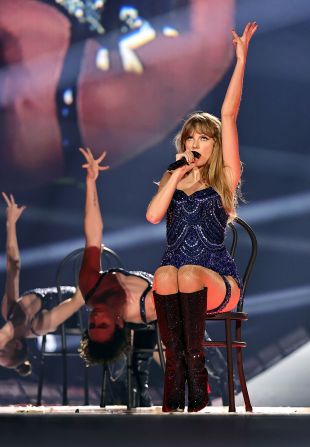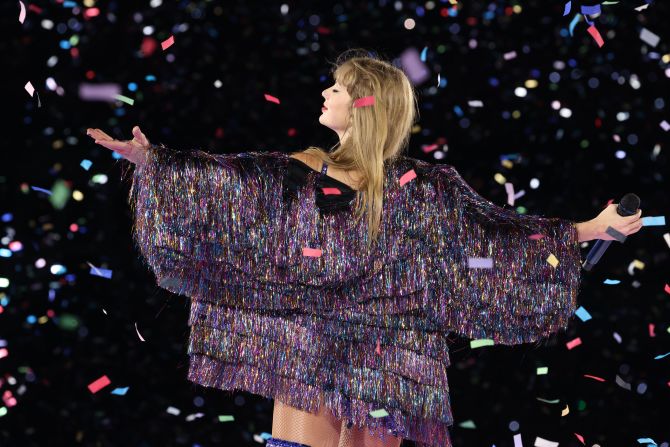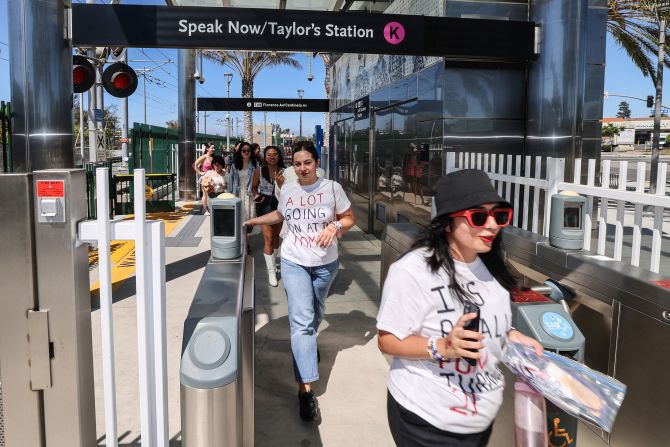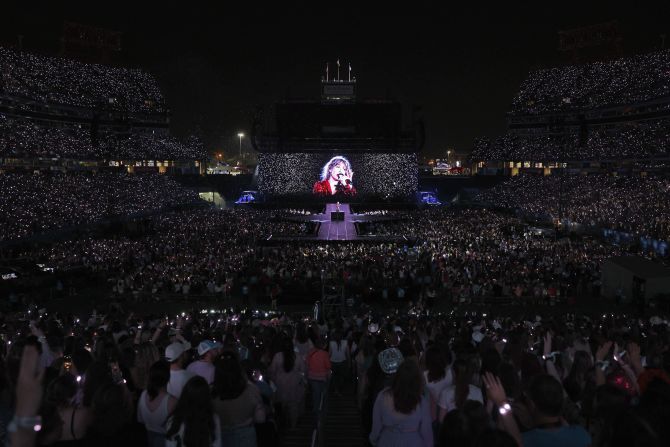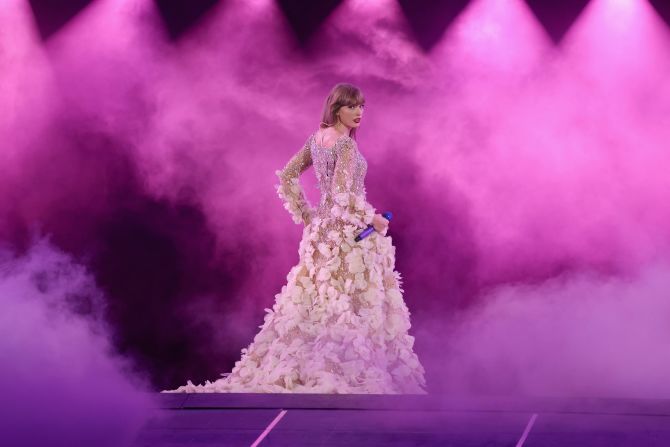The concert tour that made Taylor Swift a billionaire wraps up this weekend, but it has already left a lasting impact on the global economy.
The pop superstar, whose final performance of “The Eras Tour” takes place Sunday night at BC Place Stadium in Vancouver, British Columbia, emerged as a business titan after 152 concerts in 51 cities. Eras became the highest-grossing tour of all time with an estimated windfall of $2.2 billion.
In the United States, concertgoers spent about as much as football fans spend for the Super Bowl — an average $1,300 on travel, hotels, food and merchandise, according to the US Travel Association. But the Super Bowl is just one game and has two weeks of marketing and promotion, while Swift’s tour hit 23 cities on 62 nights over the course of about five months.
Swifties spent an estimated $5 billion in the United States, according to an estimate by survey company Question Pro. But that total only takes into account direct spending, according to the US Travel Association, and could exceed $10 billion when factoring in indirect spending and when non-ticket holders make purchases outside of the venue.
‘Swiftnomics’ revives post-pandemic economies
That spending power was a part of the “Taylor Swift Effect,” which travel industry analysts deemed a “hospitality phenomenon.”
Downtown areas experienced higher traffic and occupancy rates due to the influx of visitors. Swift fans often extended their stays in cities that hosted multiple shows, which further boosted local revenue.
“These events have had a major revitalizing effect on local tourism industries and downtowns still struggling from the effects of the pandemic,” the California Center for Jobs & the Economy reported.
In pictures: Taylor Swift's Eras Tour
Pittsburgh, which hosted two concerts, had its highest weekend occupancy at hotels post-pandemic and the second-highest weekend occupancy in its history. Swift’s tour raised the average daily cost of rooms to $309, and the city generated $46 million in direct spending from attendees, 83% of whom didn’t live in Allegheny County.
The California Center for Jobs & the Economy estimated that Swift’s six-night concert run in Los Angeles increased local employment by 3,300 workers and local earnings by $160 million. Before the “Eras” tour hit Los Angeles, hotel jobs were about 15% below their pre-pandemic highest. The US Travel Association estimated Los Angeles County would benefit from another $320 million, with $20 million in sales and local taxes and $9 million in hotel room taxes.
Eras was also a boon for ride-hailing companies. Lyft reported rides were up by an average of 8.2% in cities hosting a Swift concert and that New Orleans saw a 31% increase.
The New Orleans Downtown Development District estimated between 80-90% of concertgoers were visitors. Greater New Orleans, Inc. estimated the concerts’ economic impact to be around $200 million. That doesn’t account for spending at restaurants, hotels and other tourism expenses.
Correction: A previous version of this story incorrectly stated that Swift performed in 52 countries.




